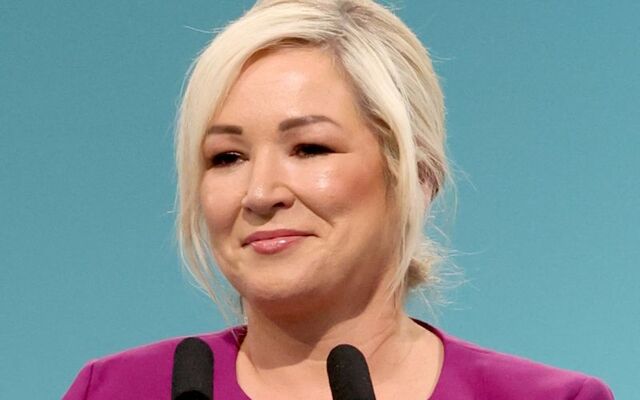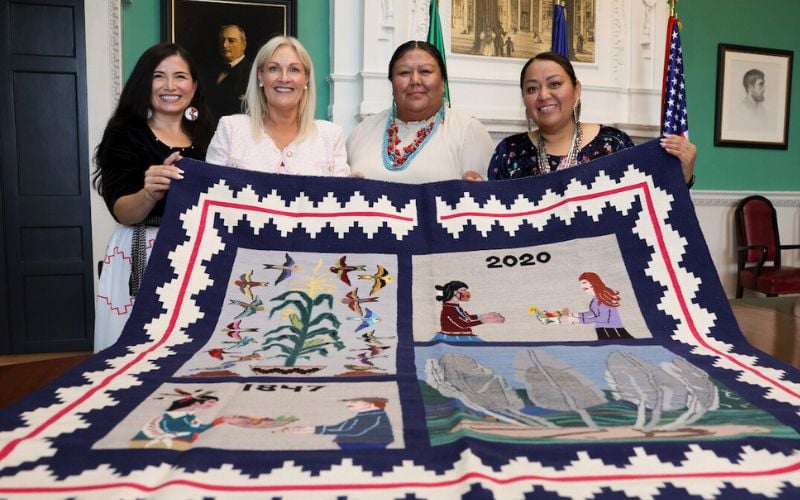Northern Ireland's First Minister Michelle O'Neill has welcomed the news that the British Government is moving to lower the voting age in the UK to 16 years old.
In a policy paper entitled "Restoring trust in our democracy: Our strategy for modern and secure elections," the British Government vowed to "legislate to lower the age at which you can vote in all UK elections to 16."
First Minister O'Neill welcomed the news on Thursday, adding that she will be contacting the British Prime Minister Keir Starmer, "urging him to ensure that the right to vote at 16 applies to the 2027 Assembly and Council elections in the north."
I welcome the news that the British Government is to introduce votes from the age of 16 for elections.
This is a step forward for democracy and will enable young people to have a say in their future.
I’ll now be contacting the British Prime Minister, Keir Starmer, urging him to…
— Michelle O’Neill (@moneillsf) July 17, 2025
However, a spokesperson for the UK Ministry of Housing, Communities and Local Government told the PA on Thursday that the new legislation is expected to be in place before the next general election in 2029, but not the next Stormont election in 2027.
“Our manifesto commitment to lower the voting age to 16 during this Parliament includes all non-devolved elections across the UK," the spokesperson told the PA.
"This includes elections to the Northern Ireland Assembly and local government elections in Northern Ireland.
“We intend for the franchise change to be in place in good time ahead of the next general election.
"Our expectation is that this will not be in place for the May 2027 Northern Ireland Assembly and local elections.
“This Bill will include a number of major changes to our electoral system, as well as expanding the franchise, and we need to get these right.”
The UK government holds responsibility for Northern Ireland's Assembly and local council elections.
(Scottish and Welsh governments are responsible for their own local elections and elections to the Scottish Parliament and Senedd Cymru, respectively. In both countries, the voting age for these elections is already 16.)
As it stands in Northern Ireland, the age to vote is 18, though people can register to vote up to two years before reaching the voting age.
The policy paper published on Thursday addresses a number of technicalities that may impact lowering the voting age in Northern Ireland, most notably, ways to verify a voter's identity.
The notion of lowering the voting age in Northern Ireland is not new. Just last September, four Sinn Féin MLAs introduced a motion in the Northern Ireland Assembly calling for the change.
The motion proposed: "That this Assembly notes the motion agreed by the Assembly, in November 2012, calling on the British Government to introduce legislation to change the voting age to 16; regrets that previous British Governments failed to introduce such legislation; further notes the manifesto commitment of the Labour Government to give 16 and 17 year olds the right to vote in all elections; believes that the voting age should be reduced to 16 for all elections and referendums; and calls on the British Government to introduce legislation to accommodate this change."
An amendment to add an endorsement for the recommendation from the Institute of Public Policy Research 2023 report was put forth by four Alliance MLAs, and the motion ultimately was carried.
More recently, a motion on the topic was debated in March during the fourth sitting of the 2023-2025 Northern Ireland Youth Assembly.
Ultimately, 37 Youth Assembly Members voted yes for ‘Votes at 16,’ with 14 voting against, and their motion was carried.
And in Ireland, a 2022 report from the Children's Rights Alliance also supported lowering the voting age to 16.




Comments